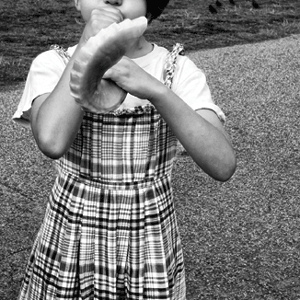Rick: "If it was real life you, you'd have to not know that the cameras were there and that's never the case in any of those programmes."
Paul: "If it was real life I'd be watching someone sitting down watching telly all day." Since the early days of reality programming, it has been consistently attacked for being voyeuristic, cheap, sensational television. Articles such as 'Danger: Reality TV Can Rot Your Brain', which appeared in Broadcast last year, are typical of the type of commentary that dominates discussion of the various popular formats that make up this genre from adventure games to makeovers, documentaries to eavesdropping shows. In a UK report for the Campaign for Quality Television in 2003, reality TV was singled out by Michael Tracey of the University of Colorado as the "stuff of the vulgate", encouraging "moral and intellectual impoverishment in contemporary life".
Broadcaster John Humphrys recently attacked shows like Big Brother for their "mindnumbing, witless vulgarity." Speaking at the Edinburgh TV Festival, he said: "The worrying factor is the coarsening effect . . . it's partly because of the sheer vulgarity, but it's even more that it turns human beings into freaks for us to gawp at."
But Humphrys has fallen into the old trap of adopting the hyperdermic theory of the media which assumes that its influence is oneway. In researching the people who watch reality TV I found that, far from being passive receivers, viewers mediate and respond to these programmes with a high level of informed debate. Whether they're fans of game shows like Big Brother, contests like Pop Idol, or factual series like Animal Hospital, they are looking for more than just entertainment. They will be engaged in critical viewing of the attitudes and behaviour not just of the ordinary people in the programmes, but of the ideas and practices of the producers. As John Ellis pointed out in a recent article, audiences of reality programming are involved in exactly the types of debates about cultural and social values that critics note are missing from the programmes themselves: "on the radio, in the press, in everyday conversation, people argue the toss over 'are these people typical?' and 'are these really our values?'."
Take the issue of truthfulness. Viewers of shows like Big Brother know the stories have been created for television. 73 per cent of respondents in my survey of over 9,000 people (aged 465+) thought stories in these popular factual programmes were sometimes made up or exaggerated for TV. Only 12 per cent believed they actually happened as portrayed in the programmes. Most people realise that these game shows are set up to encourage participants to perform the roles of ordinary people, contestants and TV personalities. This may help to explain why 70 per cent of adult respondents thought that members of the public usually overacted in front of cameras in these shows.
The manner in which people perform in different types of reality programmes is subject to intense scrutiny by audiences. Discussion tends to focus on general home truths about 'acting up' in front of television cameras, and the unreality of television about real people. Audiences gossip, speculate and judge how far people can portray themselves and stay true to themselves in the spectacle/performance environment. As one viewer commented on a contestant in Big Brother: "I don't think she ever forgot that the cameras were there: she was plucking her pubic hairs with her tweezers! In the garden with everyone else watching!"
For a number of reasons, viewers have come to distrust visual evidence in reality programmes. "I'm not quite sure I trust that what we're seeing is not being staged" was a typical response. The success of these formats is in part a result of the hybridisation of factual and fictional genres observational documentary crossed with soap opera (docusoap), or game shows that put people into unpredictable settings. This mixture of factual and fictional techniques ensures viewers watch with one eye on the visual evidence, and another on the dramatisation. The high profile fakery scandals of the late 1990s, such as the dramatisation of Maureen's story in Driving School, also encourage public debate about whether what we are seeing on television is real or not. At the same time, the popular appeal of characters such as Maureen, or the stardom accorded to winners of Big Brother, also encourage viewers to see such people as celebrities, or nonprofessional actors, rather than ordinary people like themselves.
All of these factors contribute to viewers' awareness of how far the reality shows are planned and directed. And if they are aware of the constructed nature of these formats, they are also aware of the staging of reality in other types of factual programmes, such as documentary, or even news. In other words, these audiences are truly media literate.
If the debunkers of reality TV actually listened to the people who watch such programmes they'd realise that rather than "mindnumbing, witless vulgarity," Big Brother, I'm a Celebrity... and even Too Posh to Wash can actually foster a new kind of intellectual engagement.

